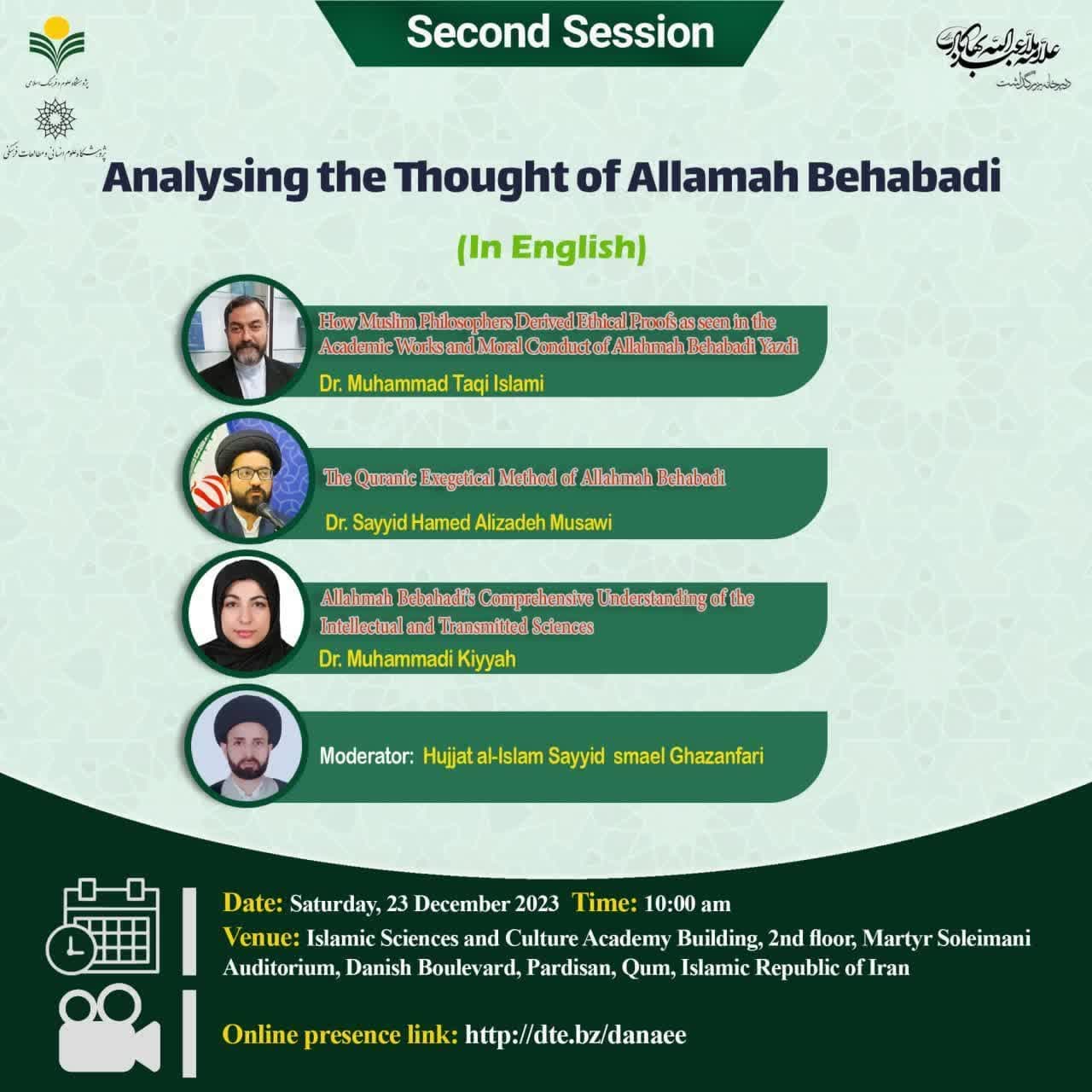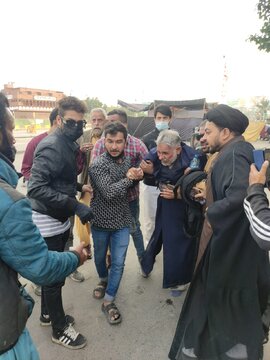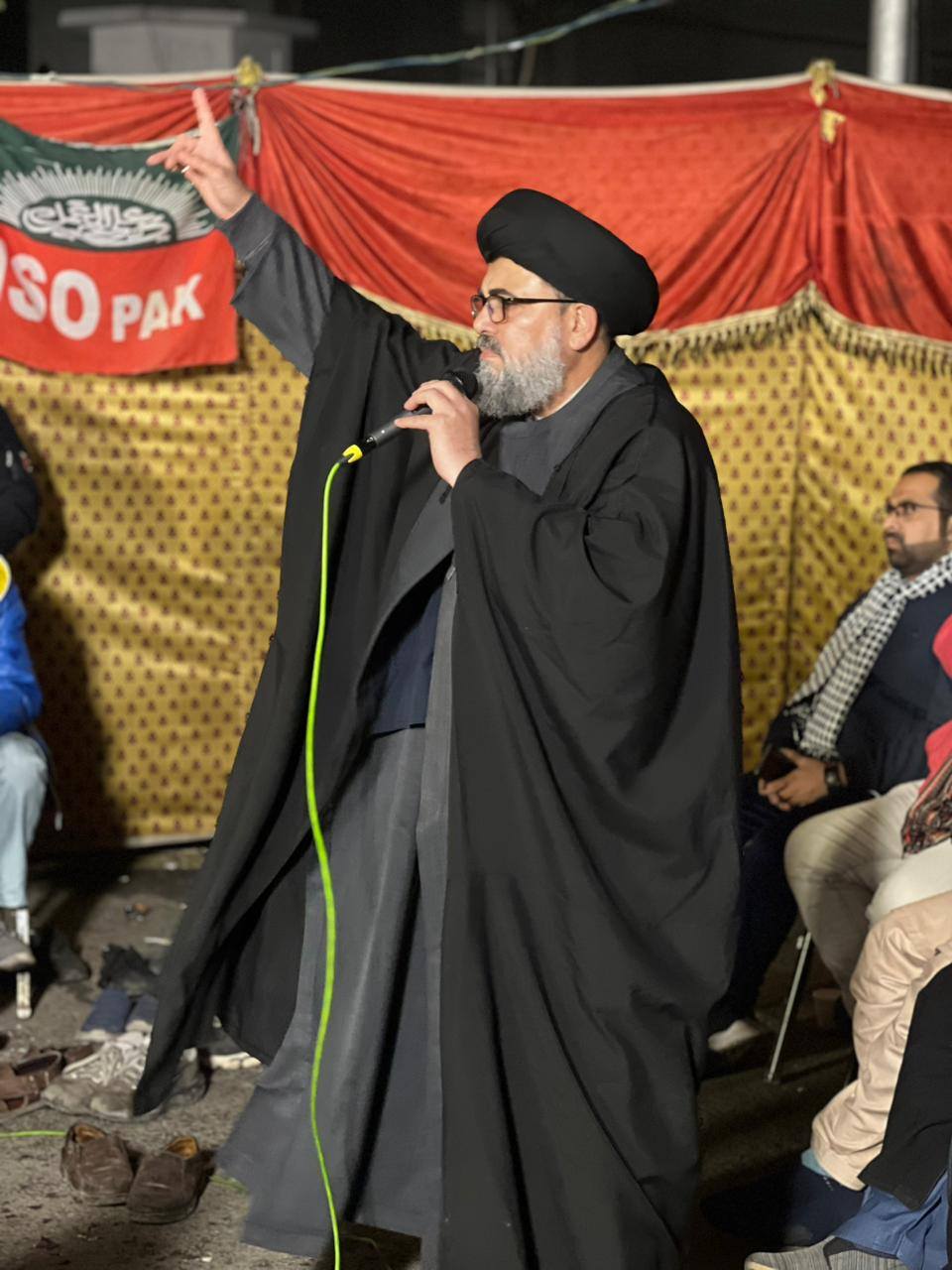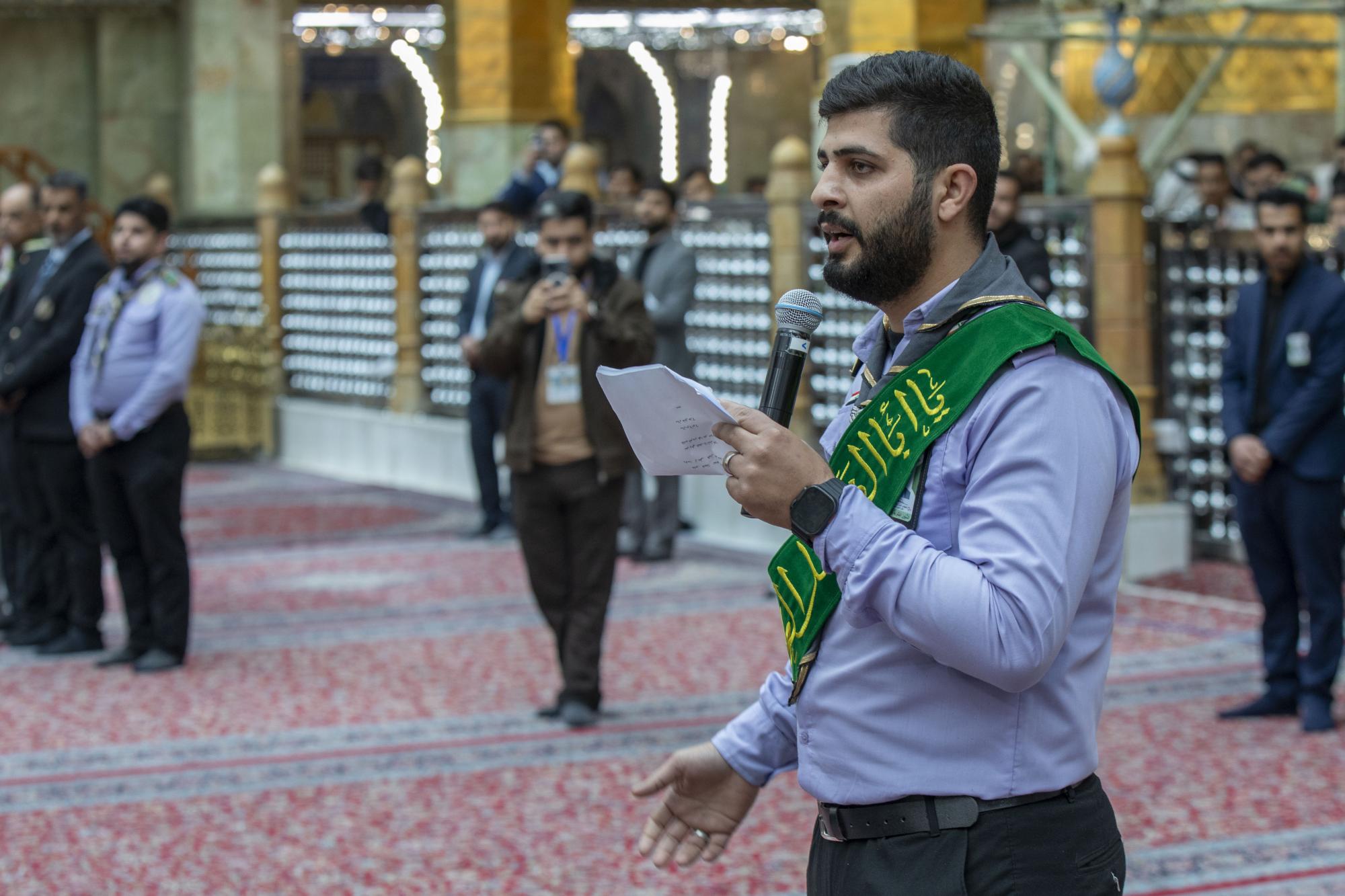The ceremony was held on Saturday, 23 December 2023 in Qom.
At the beginning of the meeting, while welcoming the audience, the organizers of the meeting were appreciated. In the following, while pointing out the need to pay attention to the position of scholars, it was pointed out the greatness of Allamah Behabadi Yazdi.
Then, Dr. Eslami presented his material under the title "How Muslim Philosophers Derived Ethical Proofs as seen in the Academic Works and Moral Conduct of Allamah Behabadi Yazdi" as follows:
Today, applied ethicists introduce three justification and reasoning methods to prove moral judgment: top-down method, bottom-up method, and reflective equilibrium method. The first and second methods suffer from forms of abstraction and relativism, so thinkers invented a third method called "Moral Principlism”.
A group of principlists justify moral principles based on human reason and nature, but another group considers the basis of the justification of moral principles to be "Common Morality". William Frankena believes that it is not possible to reach a stable theory and present moral propositions in the form of descriptive theories. Unlike Western moral philosophers, Muslim sages have paid attention to common moral propositions. Following the thought of Muslim scholars leads us to believe that their position is in line with the answer to moral rules, which is considered a meta-ethical discussion.
According to Hakim Behabadi, the expression of the later scholars in this regard is very brief, which has caused some critics to accuse this moral style of relativism. However, with the inspiration of his references, we can discover the stylistic ambiguity of the moral reasoning desired by Muslim sages.
The result is that the prevalence of moral propositions is in harmony with the reality of human moral life, which has had a great impact on the practical life of scholars, including Hakim Mulla Abdullah Behabadi Yazdi.
In the following, Dr. Sayyid Hamed Alizadeh Musawi presented his material under the title "The Quranic Exegetical Method of Allamah Behabadi Yazdi" as follows:
The first commentators in Islam were the Infallibles, peace be upon them. After them, scholars of both schools of thought started writing Tafsiri books. There are two main interpretation methods: tendencies and rules. Tendencies have another category: philosophical, theological, mystical, etc.
The interpretation methods and tendencies are as follows:
• Pure hadithi: not paying attention to the validity of hadiths and their Sanad
• Hadith study: attention to authenticity and Sanad
• Literary: attention to words and terms
• Mystical: which was sometimes the source of misunderstandings. We do not have this tendency in Allamah Behabadi's works.
• Scientific: Islamic sciences, experimental sciences, etc. This was not Allamah Behabadi's method, although this method has become popular these days.
Allamah Behabadi has three methods of interpreting the Qur'an and has used the method of interpreting the Qur'an to the Qur'an a lot.
Finally, Dr. Muhammadi Kiyyah presented her material under the title "Scientific Diplomacy in the Safavid Era: A Case Study of Allamah Behabadi" as follows:
The 16th century witnessed a period of intense rivalry between the Ottoman Empire and the Safavid Empire, which extended into the religious realm.
Amidst this conflict, a movement emerged in Najaf that aimed to protect Shia Islam from political differences and perpetuate Shia traditions.
Mulla Abdullah Behabadi, one of the prominent scholars of Najaf, played a key role in carrying out this important mission.
He successfully established diplomatic channels that distanced Najaf from Ottoman and Safavid rivalry.
And at the same time, he participated in the transfer of pre-Esfahan scholastic thought to Shiite Islam after the Isfahan era.
His work in the field of logic enriched the intellectual traditions of the Shiites and ensured their vitality and dynamism.
.......................
End/ 257





